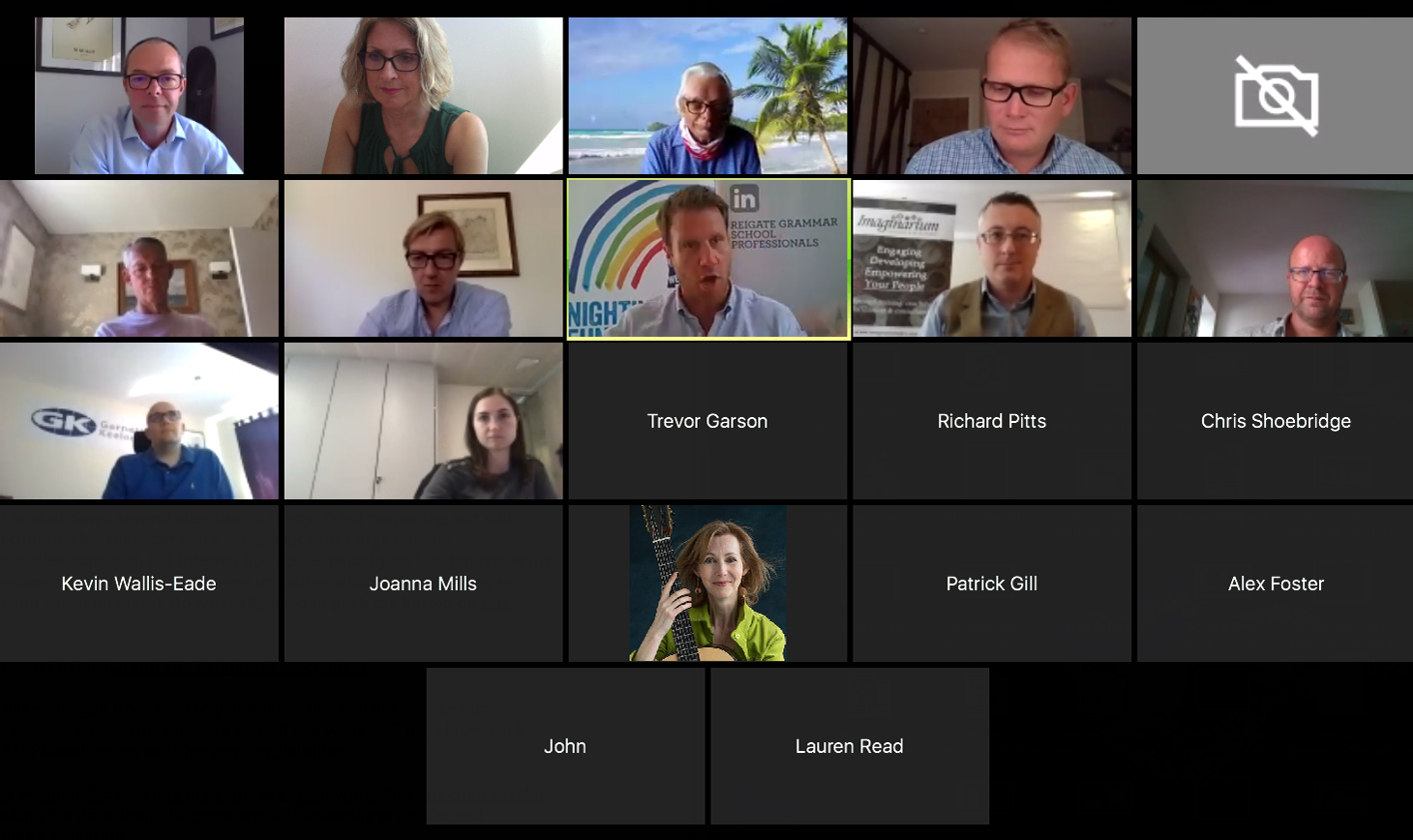
RGS Professionals: The Future of the Workspace
The RGS Professionals event on The Future of the Workspace, held virtually on Thursday 30 July 2020, provided a well-timed insight into the many considerations facing business leaders as we navigate our way through the pandemic.
We were delighted to be joined by Reigatians from around the world, including Dr Alan Jeary (RGS 1957-65) in New Jersey, Steve Lynch (RGS 1980-84) in France and Tony Grant (RGS 1978-86) in Dublin, as well as parent of alumni and Chair of Governors, James Dean.
Foundation Associate Director, Jonny Hylton began by welcoming everyone and introducing our hosts.
Martin Jacks (RGS 1986-91) has worked for 26-year career in construction, refurbishment and fit-out across multiple sectors including commercial, charity, industrial, technology (data and disaster recovery centres), retail, education, healthcare, hospitality and super prime residential.
Ed Luck (RGS 1984-1989) has experience across multiple sectors including energy, telecommunications, leisure, gaming, construction and education. Growth, change and turnaround environments are at the core of Ed’s experience, driving multi-disciplinary transformation programmes.
Martin and Ed reconnected two years ago and quickly recognised the complimentary nature of their work. The result is Skape and an end-to-end change process that focuses on people, strategy and the physical environment.
What have we learned?
Martin began by explaining that economic uncertainty was widespread before 2020, but that the pandemic has exposed the fragility of many businesses. Where companies may have tentatively discussed flexible working, hot desking and home working in the past, the pandemic has kick-started discussions about embedding these into future plans.
Two schools of thought
While people find change uncomfortable, the pandemic has proven that we can adapt. But do we look to create an environment that takes us back to near normal? Or do we embrace a new future, with some form of remote-working, and/or satellite offices at its heart?
Ed referenced the results of a YouGov survey (May 2020), which showed that 48% of people are working from home and 91% of people stated that they do not want to go back to how things were before.
The sustainability agenda also has a crucial role to play, i.e. can you reduce your carbon footprint if your workforce no longer needs to commute?
Staff wellbeing
Managing uncertainty effectively is testing the mettle of leaders and every aspect of working – for every individual – needs to be investigated. Business culture will change, and leaders need to acknowledge this and think about the culture they want to build.
While working from home may be beneficial for some and flexibility is a key driver for the new workforce, for others, working from home may not be practical. And don’t discount the value of informal office interactions – those water-cooler moments – which help form long-term friendships and create a buzz.
Communication within teams, between teams and across the business is crucial, especially for those who struggle even in near perfect conditions.
In summary…
Your strategy needs a careful and deliberate audit and assessment of priorities for both near-term implementation as well as the mid- to long-term needs of your people, environment and strategy.
Not sure which direction to take? Speak to Martin or Ed to discuss how Skape can help your business. Contact them at: mjacks@skape.london or ed@skape.london.
Thank you to Martin and Ed and for all the RGS Professionals members who joined us.
Not a member of the RGS Professionals group? Join via LinkedIn or email foundation@www.rgs.foundation.
